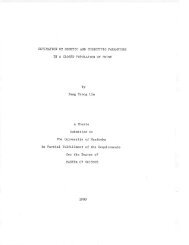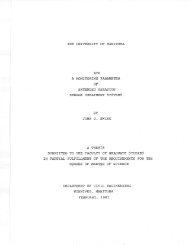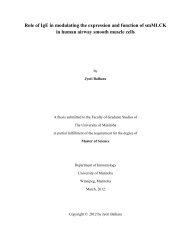Adverbial and Argument-Doubling Clauses in Cree - MSpace
Adverbial and Argument-Doubling Clauses in Cree - MSpace
Adverbial and Argument-Doubling Clauses in Cree - MSpace
You also want an ePaper? Increase the reach of your titles
YUMPU automatically turns print PDFs into web optimized ePapers that Google loves.
ii)<br />
Full NPs are optional with regard to thematidgrammatical relations<br />
Any NP refemng to the subject, object or <strong>in</strong>direct object <strong>in</strong> a <strong>Cree</strong> sentence is optional. It<br />
does not have to occur for the sentence to be grammatical. This was shown <strong>in</strong> example<br />
(6) <strong>in</strong> chapter 1.<br />
iii)<br />
Absence of certa<strong>in</strong> subjectlobject asymmetries<br />
Because the PAH stipulates that pronom<strong>in</strong>al argument languages place oven NPs <strong>in</strong> non-<br />
argument positions, it provides an explanation for the absence of certa<strong>in</strong> subjectlobject<br />
asymrnetries found <strong>in</strong> configurational languages. This is especially clear <strong>in</strong> CO-reference<br />
restrictions, or the lack thereof. For example, certa<strong>in</strong> constmctions that would result <strong>in</strong> a<br />
Pr<strong>in</strong>ciple C violation <strong>in</strong> English are perfectly acceptable <strong>in</strong> <strong>Cree</strong>. Pr<strong>in</strong>ciple C stipulates that<br />
refemng expressions must be fiee, i.e., not bound by any other element <strong>in</strong> the sentence. A<br />
Pr<strong>in</strong>ciple C violation occurs <strong>in</strong> configurational languages when a referential expression is<br />
bound by another NP <strong>in</strong> an argument position, as is seen <strong>in</strong> the ungrammatical English<br />
translation of (20b).<br />
(20) a. animêniw JO hn, omô hkomân ki-wîcihik7<br />
that John his-knife pst-help-TA-(O-3)<br />
'That knife of John's, helped hiq.'<br />
b. kî-pikonam [animêniw John, omôhkomân]<br />
pst-break-TE(3-0) that John his-knife<br />
* 'He, broke that knife of John'si. '<br />
These examples are cited fmm Russell <strong>and</strong> Re<strong>in</strong>holtz (1995) !ho mdelled these sentences diet Baker's<br />
( 199 1) Mohawk exampies.



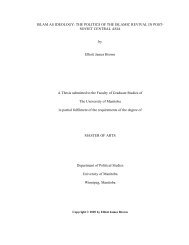
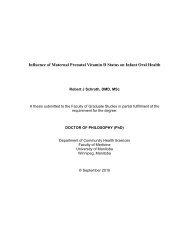
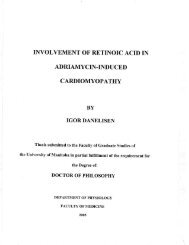
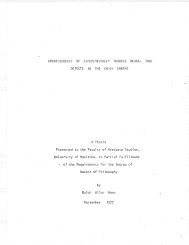
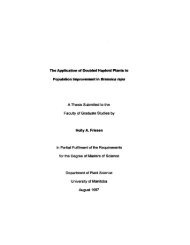
![an unusual bacterial isolate from in partial fulf]lment for the ... - MSpace](https://img.yumpu.com/21942008/1/190x245/an-unusual-bacterial-isolate-from-in-partial-fulflment-for-the-mspace.jpg?quality=85)
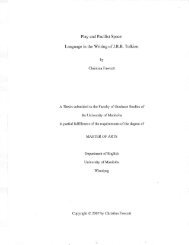
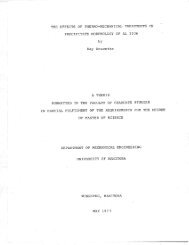
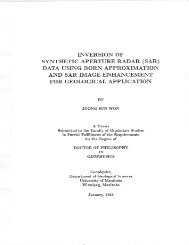
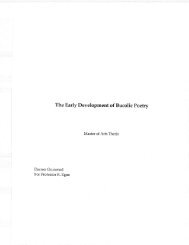
![in partial fulfil]ment of the - MSpace - University of Manitoba](https://img.yumpu.com/21941988/1/190x245/in-partial-fulfilment-of-the-mspace-university-of-manitoba.jpg?quality=85)
